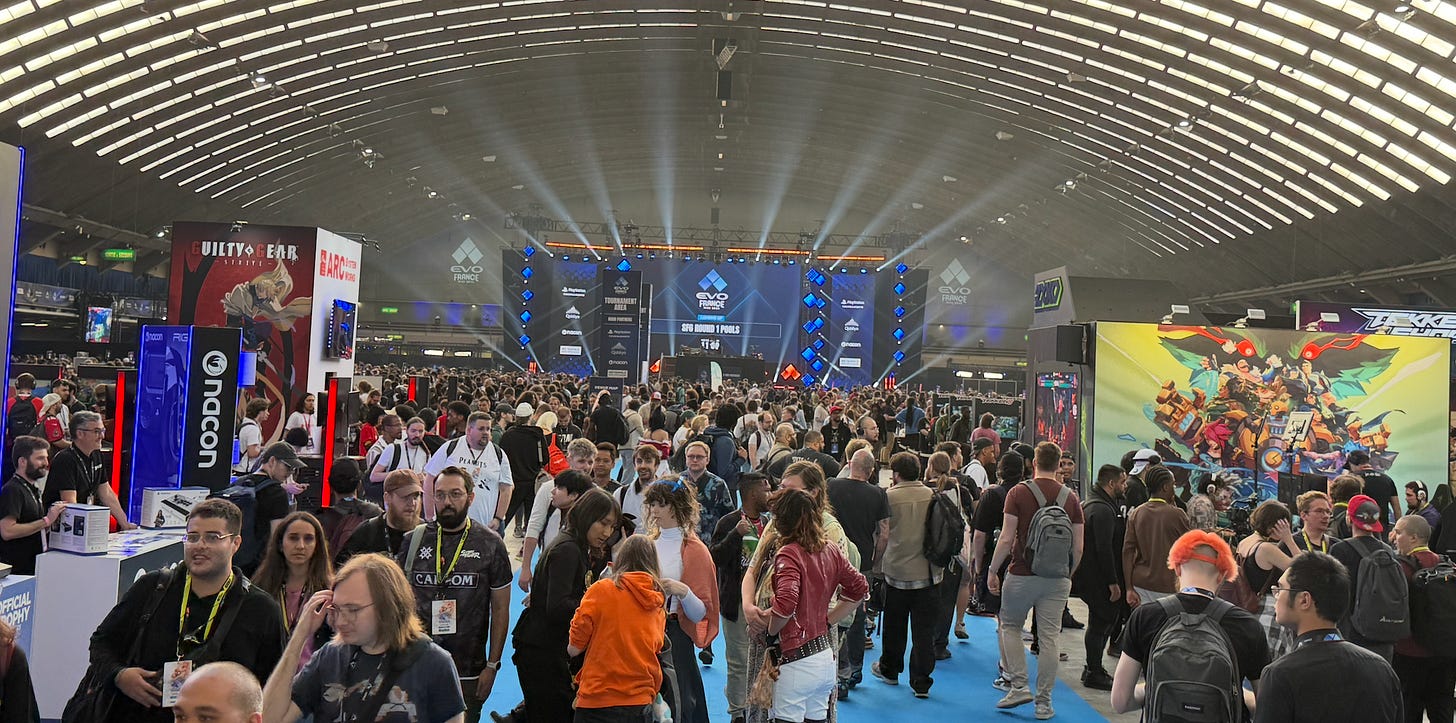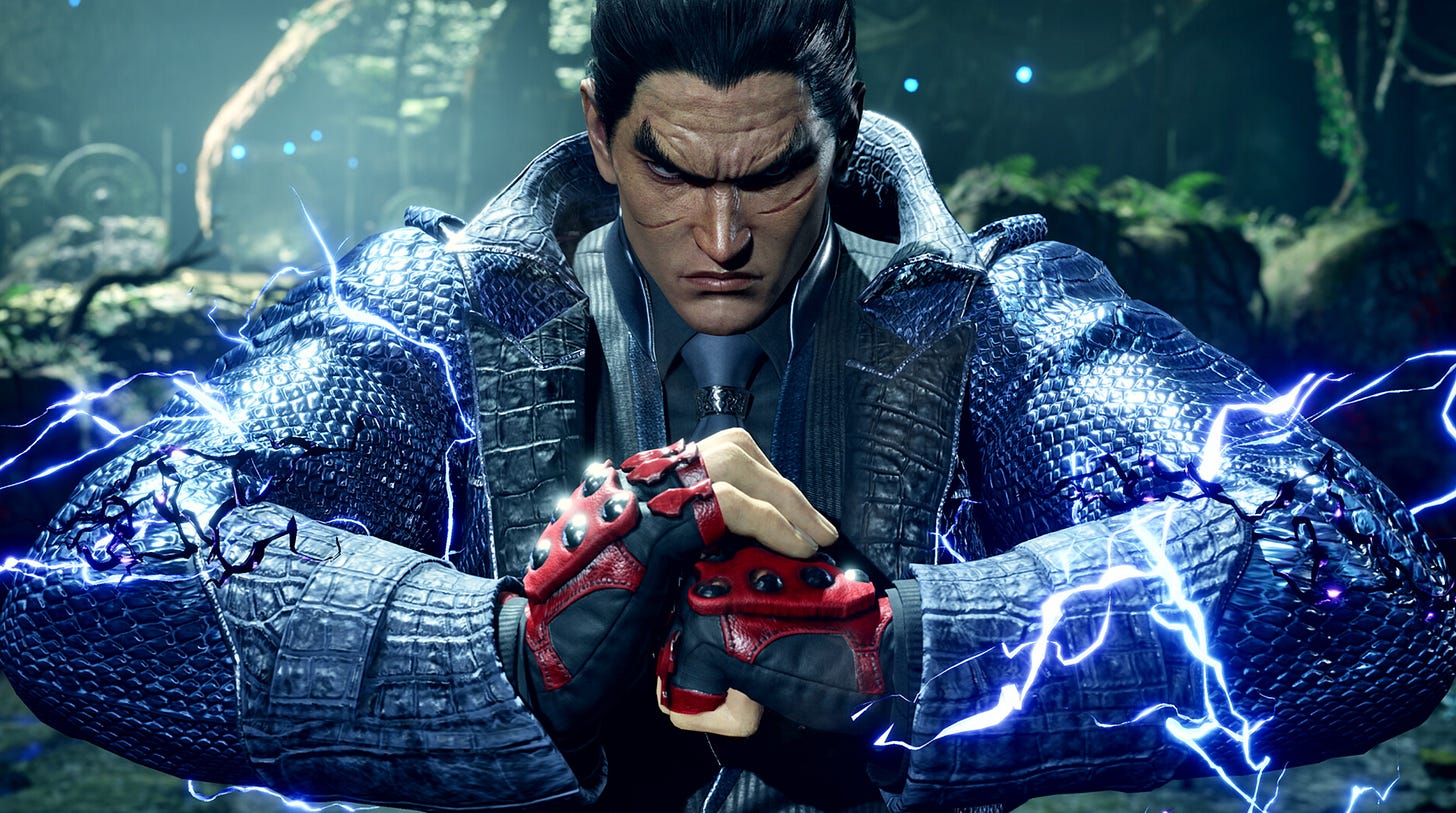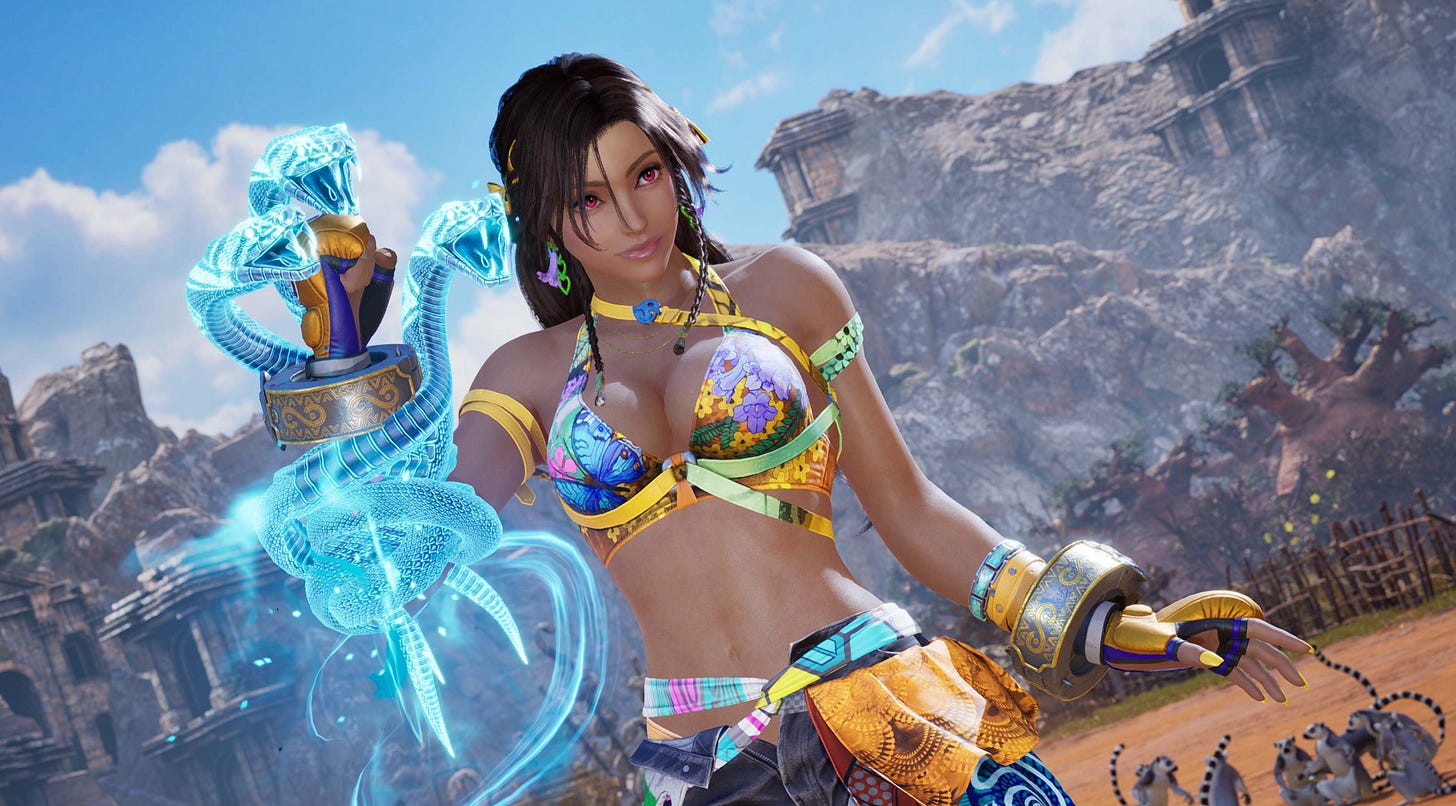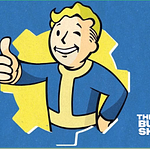Listen now on Apple, Spotify or YouTube
In This Edition
The Tekken team on…
- Rising budgets
- The role of live events
- Developing new characters
- The state of the fighting game genre
For the leaders of the Tekken series, travelling the world and attending tournaments is a fundamental part of the job.
I met with executive game director Katsuhiro Harada, chief producer and game director Kouhei Ikeda and producer Michael Murray at Evo France, which took place in Nice last month.
I’d never attended Evo before. But I know these tournaments have become central to the Tekken franchise. It’s where the team promote the latest updates and changes to its games, and it’s where they go to get direct feedback from players around the world.
But for Murray, these events also represent a different view of the fighting game fandom than what he sees online.
“This community is kind-of a subset as of the world as a whole, right? And right now the world is just so divided on so many different topics, and people are at each other’s throats,” he says. “And I think it appears like that in the fighting game community online as well. That’s why it’s so important that we still have events like Evo France, because when you come to these events of people who are passionate about the game, and they’re playing together, it’s totally different than something you would see online.
“I really think that more than ever, events like these are important. And not just for people to view, but to actually come out and participate.”
For Harada-san, who has now spent more than 30 years making Tekken games, it’s this interaction with real people that has kept him motivated.
“My initial 10 years [on Tekken] was all about proving that I love fighting games more than any other developer on Earth. That was the driving force [for me] for quite some time. Then I felt like I proved it to some extent with the revenue and the milestones that the series had hit. But then it transitioned to another motivation after we’ve been traveling the world together, going to all these events and interacting with fans… as you’re working on the game, you can see their faces because you get to know them, and that really is who you are doing all of this for, which I think is the same for all of us.”
Tekken’s development transformation
In the beginning, a new Tekken game would arrive every one or two years. That cadence has slowed considerably. There was a nine-year gap between Tekken 7 and Tekken 8.
Of course, these games now live for much longer with regular new downloadable characters and stages, but adding new things is no small feat. At Evo France, the team revealed the character Armor King for Tekken 8. He is someone from previous titles, he has a specific look and a back story, but it still takes six to eight months to add someone like him to the game.
“It’s quite different with a character like Miary Zo, which we’ve recently shown off and has never appeared in the series before,” Ikeda-san explains. “Since the initial concept isn’t there, you need to do the research from zero. We went to Madagascar [where the character is from] to interact with the local population and find out factual details about the culture in the region, before then trying to flesh it into a character. That whole process for a brand-new character is usually a year to 18 months.”
For a game as fantastical as Tekken, I had to ask why it was so important to get those cultural elements spot on?
“We didn’t start off with authenticity as the most important aspect of the development,” Harada-san says. “It started with trying to come up with a concept for a brand-new character in a new region that really excites people.
“The reason why [that authenticity] is a bit more important recently is because of how big the internet is now, which is leading to everyone feeling like they’re an expert on a subject matter, even if they haven’t actually been and seen it themselves.
“When we are researching a character, they often speak a certain language from a certain region… even though the other characters communicate in their own language, it’s a peculiar Tekken thing. We like to have that authentic element. And also the martial art that the character uses is based on something in a real area. We wanted to pay the utmost respect to the people who are actually involved in those martial arts and make sure that is spot on.
He continues: “It’s also for the fans as a whole who don’t live in that region, but also fans from the region who feel really happy that this character has been developed to represent them. If we don’t go and do the thorough research, then you could be just like everyone else on the internet… feeling like you know what the country is like and you make a character, but it turns out to be totally different than the reality.”
With the time it takes to develop characters, the growing gaps between releases, research trips to exotic locations, not to mention attending global events, it’s clear that making Teken is becoming increasingly expensive.
“It’s something that all developers face, the budget necessary to create a proper AAA title has just ballooned over the past couple years, especially even maybe the past seven or to eight years,” Harada-san says. “I have various roles myself, a game designer, producer, director etcetera, and I have to think of the budget quite often in those roles. But I don’t necessarily do it as much as I should, because my focus is more on what the content should be and what will it look like when it’s finished, rather than trying to cut the cost. So, from a producer standpoint, maybe I’m a failure compared to some people in Bandai Namco Entertainment, who are more adept at the money side.”
He adds: “I want to make sure everyone’s aware my salary hasn’t ballooned with the development costs at all. Contrary to opinions on the internet, I do not drive a Lamborghini like they’re saying. It’s quite odd that the dev cost have gone up so much, even though salaries have pretty much stayed the same, especially in Japan.”
Murray adds: “That’s because the number of people involved in a project is drastically more than it used to be.
Harada muses: “Why is that? I wish we could do something more effective with that.”
It’s worth noting that fighting games are growing. Tekken 8 is selling faster than Tekken 7. But the real success for the genre is not necessarily in the sales numbers, and that’s something Harada-san is increasingly interested in.
“People talked about a golden age of fighting games back in the day, but if you look at the parameters that measure success, whether that’s revenue or copies sold or whatever, there’s actually an increase in the participation of the [genre] as a whole recently,” he says.
“If you look at other things such as these events that we have being streamed and people who are participating, whether they’re average streamers or big influencers. Lots of big companies are coming in and putting money into advertisements for these events, and a lot of influencers are making big money off of their streams. But the revenue for our games doesn’t reflect any of this stuff. It’s quite interesting to see how that might change. For example, most of the tournaments are licensed for free to people who want to run them or stream them. Occasionally you’re seeing certain events that pop up where they’re charging pay-per-view, or something like that. Seeing how the money side of this changes, that’s something I’m quite interested in.”
It sounds like Harada-san is referring to the recent moves from Capcom, which is now charging fans to watch live broadcasts of the Capcom Cup and the Street Fighter League World Championships.
“That’s just one example of many,” he says.
“Lots of big companies are putting money into advertisements for these events, and a lot of influencers are making big money off of their streams. But the revenue for our games doesn’t reflect any of this”
One of the last questions I asked our trio of Tekken developers was around what they’d like to do next. It’s a pretty common interview question, but the answers I got surprised me.
“I’m a fighting game player from the community before I even joined the team,” Ikeda-san answers. “There’s just that special thing about fighting games, about connecting people.”
Harada-san quips: “You like Virtua Fighter, right? You could maybe help them out.”
Ikeda-san laughs: “You know… a different element of fighting games to work on would be cool, because it is something that really brings people together.”
What about Murray?
“One of my passions is Muay Thai, and I’ve been helping out the owner of my gym promotion-wise. So that’s been an interesting thing to start off as a beginner and to get more experience in.”
And Harada-san?
“I just want to take it easy a bit. I mentioned on Twitter, my kidney function is down by 30%. I’m feeling a bit tired and I want to recover… but apparently kidneys don’t really recover, so I’ve stopped drinking alcohol and I’ve been improving my diet.”
Those weren’t the answers I was expecting. The typical responses I’d get to that question are ‘I just want to deliver for the fans’ or ‘I want to make the ultimate game’. Instead, Murray wants to improve his martial art, Ikeda-san wants to connect people together, and Harada-san wants to get healthy.
Those were real, human answers. And it harks back to what Murray was saying about live events, and the importance of getting off the internet and connecting with people in the real world. At Evo, the gamers swarming the halls cease being online usernames, and these three men are no-longer faceless developers. It’s an event full of passionate people being genuine with one another, gamers and game makers alike.
I hope I get to visit Evo again.
That’s it for today. There is no episode on Thursday because of Thanksgiving, but we are putting out a special report for paid subscribers later in the week, so check back for that. Until next time, thank you for reading.














